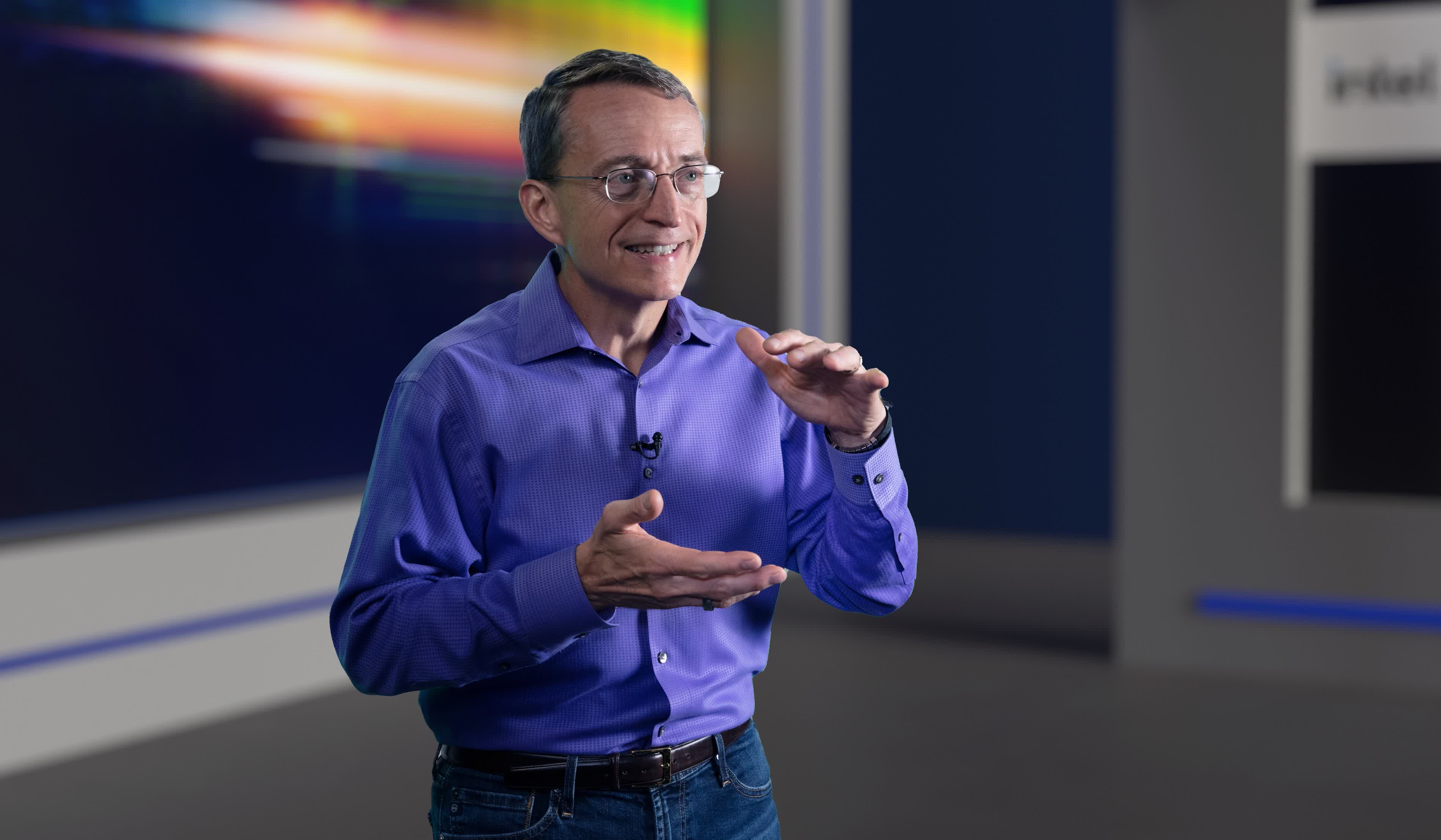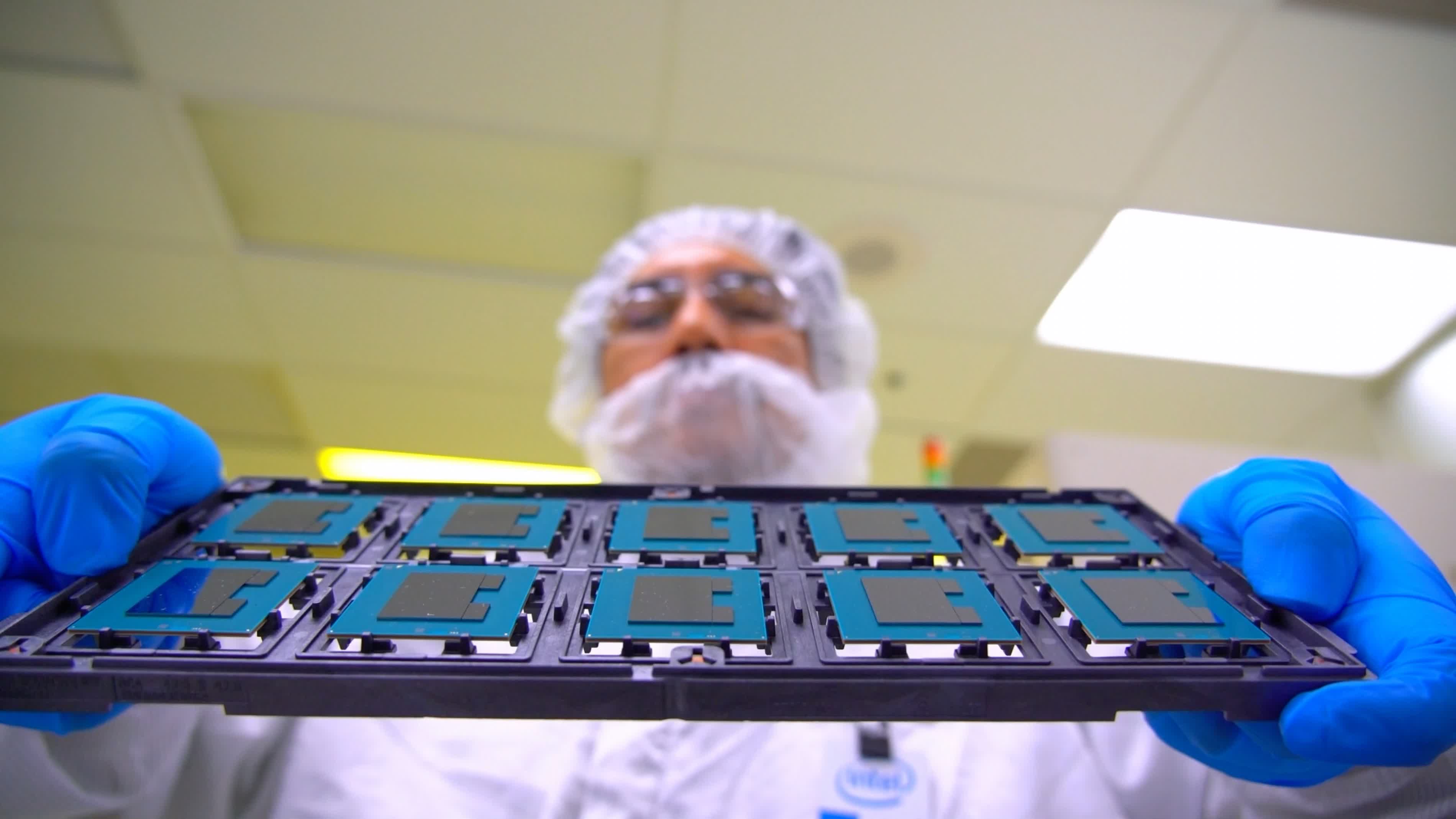The big picture: The global semiconductor shortage and the desire to create a stronger supply chain are pushing semiconductor giants to invest significant amounts of money in expanding to North America and Europe. Intel is no exception and is also motivated by an ambition to retake the leadership position in process technology.
On Tuesday, Intel CEO Pat Gelsinger delivered his first keynote since stepping into office, closing the first day at the IAA Mobility event in Munich, Germany. During his presentation, he revealed the company has an ambitious plan to invest up to €80 billion ($94.7 billion) in building new chip plants in Europe, amid a global race to expand manufacturing capacity and reduce the industry's reliance on Asia for semiconductors.
The fund will be committed towards two chip fabs at a new site in Europe, and the investment will be spread over several years. The location of the site has not been decided yet, but Intel plans to eventually populate it with no less than eight manufacturing facilities.

To that end, Gelsinger has been engaging in discussions with officials and major customers in Germany, France, Belgium, Poland, and the Netherlands, and is expected to announce the location of the new manufacturing site by the end of the year. At the same time, Intel wants to start making chips for automakers using an existing plant in the company's Leixlip campus in County Kildare, Ireland.
There's a good reason for that, as Intel expects semiconductors to make up 20 percent of the bill of materials for new cars by the end of the decade, thanks to increased demand for premium and electric cars with advanced driver assistance technology.
Like rival TSMC, who is also looking to create a European arm, Intel Foundry Services will be looking for subsidies that politicians are offering from the EU's Recovery and Resilience Fund, which amount to $175 billion over the next decade. Gelsinger noted during his presentation that "you need us and we need you...The aim is to create a center of innovation in Europe."
